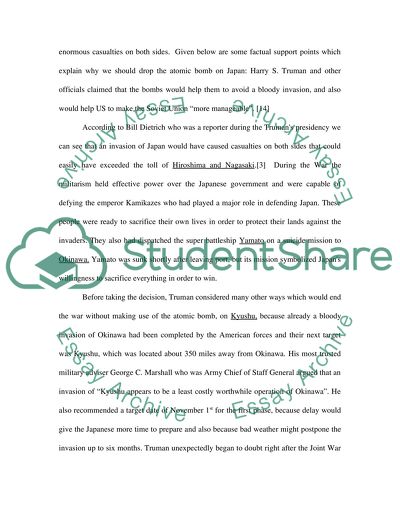Cite this document
(“Why We Had to Drop the Atomic Bomb Essay Example | Topics and Well Written Essays - 2000 words”, n.d.)
Why We Had to Drop the Atomic Bomb Essay Example | Topics and Well Written Essays - 2000 words. Retrieved from https://studentshare.org/sociology/1550446-why-we-had-to-drop-the-atomic-bomb
Why We Had to Drop the Atomic Bomb Essay Example | Topics and Well Written Essays - 2000 words. Retrieved from https://studentshare.org/sociology/1550446-why-we-had-to-drop-the-atomic-bomb
(Why We Had to Drop the Atomic Bomb Essay Example | Topics and Well Written Essays - 2000 Words)
Why We Had to Drop the Atomic Bomb Essay Example | Topics and Well Written Essays - 2000 Words. https://studentshare.org/sociology/1550446-why-we-had-to-drop-the-atomic-bomb.
Why We Had to Drop the Atomic Bomb Essay Example | Topics and Well Written Essays - 2000 Words. https://studentshare.org/sociology/1550446-why-we-had-to-drop-the-atomic-bomb.
“Why We Had to Drop the Atomic Bomb Essay Example | Topics and Well Written Essays - 2000 Words”, n.d. https://studentshare.org/sociology/1550446-why-we-had-to-drop-the-atomic-bomb.


